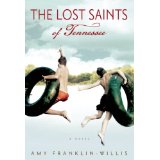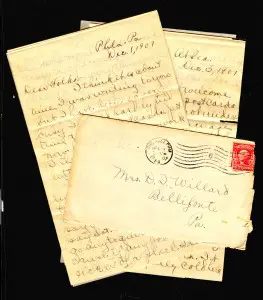Thank You, US Postal Service
January 25, 2015
The United States Postal Service gets a lot of grief these days. Derided as the delivery agent for ‘snail mail,’ they are criticized for being too expensive, too slow, outdated and time consuming in the era of instant communication.
Yes, I have tracked letters sent via ‘Priority Mail’ as they traveled to San Diego before reaching their intended destination 10 days later, two zip codes from my office. I can send a package to Hawaii (from San Francisco) in two days, but the same size box to Boston takes over a week.
And yes, grandma, I remember when a first class stamp was 5 cents. I now buy forever stamps in rolls of 100, so I don’t even know what first class postage is. (Great marketing, if you ask me.)
I can text my friends all over the country and within 10 minutes will have a response…any longer and I get impatient. Email, which we all thought was great a few years ago, is now too slow, since most people still have to check before responding.
I tweet to my followers, and most of my relatives have Facebook pages,so we’ll all know who’s doing what. I write this blog so everyone knows how I feel about what’s going on in the world.
But none of those methods can generate the emotions of a stamped letter. Neuroscientists now know that memories are more than just events. Our brains recall all five senses and any of them can spark a memory.
I was reminded of that this week, when a good friend, David Allen, sent me a batch of letters, found while cleaning out his mother-in-law’s attic.
They were written over 47 years ago when I was a freshman at Bucknell University in Lewisburg, PA. In fact, they were written in the first few months of college, when I was really still attached to my high school experience and scared to death about the future.
I remember the onion paper, the smell of the inked ribbon , and the old green and white Smith Corona that I used, to peck out letters to my parents, friends and former high school classmates. I still have the typewriter in fact – even had it reconditioned after I found it while going through my old homestead when my Dad died. I’m told it’s a collector’s item.
The letters were written to David’s wife, Betty, my best friend, and while we were never involved romantically, are filled with good natured banter that would pass for flirtation.
The actual content is really irrelevant: my observations about classes, social life, campus events, and gossip. It was 1967, and I know every campus was awash in protest and politics, but there’s none of that, so I doubt Oliver Stone will need them for some new 1960’s expose.
But for me, they are more important than any email, tweet or text I will ever send. When I re-read the words, and hold the letters, the memories of those years come flooding back. More importantly, I’m talking to my friend, Betty, again, even though she was struck down by cancer 12 years ago.
So, while I can find endless versions of various web pages, and can see the trail of my texts to friends and colleagues, none of them will ever hold the power of the printed word that I can pick up, hold in my hand, and still smell the memories from so many years ago.
For that I thank the US Postal Service and David, who was thoughtful enough to mail them back to me..
So, Why Does the World Exist?
May 10, 2013
I admit that I started reading Jim Holt’s “Why Does the World Exist?” as penance. Many years ago, Douglas Sturm, my political theory seminar leader at Bucknell University, tried to introduce me to Plato.
Seems I never had time for the deep thinking required and I almost flunked.
So when I saw Mr. Holt’s book on several 10-best lists last year, I decided to get it another try, for Professor Sturm.
I guess it took 43 years before my brain could wrap itself around the concepts but I’m glad Mr. Holt succeeded.
I would recommend this book for anyone who wants to spend some time contemplating our world’s oldest question, but particularly journalists who get caught up in the daily routine of facts, figures and political hyperbole.
Holt’s writing is erudite, easy to read and understand but filled with concepts that most of us never consider, or try to avoid.
At the same time, like any good journalist, he examines the question posed in his title from every conceivable angle. No just as a personal essay, but by interviewing leaders in the field and then explaining what they seem to be saying.
Others have called his book a “detective story” but, like his readers, who want concrete answers, he accepts or rejects various arguments along the way. He reaches his own conclusions, which we are free to accept, or not, and manages to humanize the whole effort with references to his own life and his experience with death.
The journey is interesting, entertaining and, if Professor Sturm is reading this, enlightening. I’m finally starting to understand some of what Plato was telling us. Thanks for whetting my appetite.
A Good Read
February 19, 2012
There are all kinds of book reviews. Those that wax poetic about sentence structure and pacing and the finer points of writing, without giving you any indication what a book is about.
Then there are those who tell you the whole story and never tell you if the book is worth buying.
For me, book reviews should be short and to the point.
If you are looking for a good read, pick up a copy of the “The Lost Saints of Tennessee” by Amy Franklin-Willis. – a debut novel in the best Southern literature tradition.
The genre is really beside the point. I don’t really read a lot of fiction and I’m not from the South, but I can honestly say, when I got to the last page, I didn’t want the story to end. To me that’s the mark of fine writing.
It’s good to know Ms Franklin-Willis is already working on the sequel.
Bucknell Report
September 30, 2011
To download the Report:
The Campus Climate for Bucknell University Students: A Multifaceted Analysis
The president’s letter:
OpenLetteronCampus ClimateTaskForceReport
Comments are welcome.

